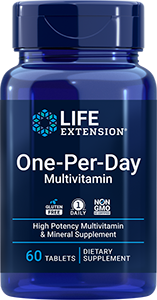How Much Cardio

Is Doing Cardio Everyday a Good Idea
By Dr. Kristie
Cardiovascular exercise not only burns calories, but it gives the most important muscle in the body, the heart, a workout. Most people are advised not to do weights ever day to give the overworked muscles a chance to rest. Does the same apply to a cardiovascular routine - or can you do cardio every day?
The reason most experts recommend not doing resistance training or weights every day stems from the fact that resistance workouts tear tiny muscle fibers – and these fibers need time to be repaired before they’re challenged again.
Most fitness experts recommend resting at least forty-eight hours after working a particular group of muscles to allow the adaptation and repair process to take place that restores the muscle to its non-fatigued state.
What about cardiovascular exercise? In most cases, it’s okay to do cardio every day. For the majority of people, a cardiovascular routine involves walking or running at a moderate pace on a treadmill, an elliptical machine, or engaging in some other form of moderate intensity exercise that lasts thirty minutes or longer.
Products
This type of moderate intensity exercise works a variety of large muscle groups and is sustained for a long period of time, so it usually doesn’t usually over-challenge “fast twitch” muscle fibers.
Fast twitch muscle fibers are the type most activated during resistance training. These fibers are designed for very short term, high intensity exercise and become fatigued very quickly. “Slow twitch” muscle fibers, on the other hand, are mainly activated during cardiovascular exercise.
They have a more abundant blood supply and energy producing mitochondria to provide them with the oxygen and nutrients they need. Because of this, they can be used for longer periods of time without becoming fatigued or overworked.
On the other hand, you shouldn’t do cardio every day if your cardiovascular routine consists of running sprints, running uphill, or any other type of high intensity exercise that works muscles hard for short periods of time. Not only are you more likely to tear muscle fibers which necessitates rest, but you’ll burn through more glycogen stores which need to be restored.
Even when you replenish carbs after a high intensity routine, it takes more than a day for glycogen to be completely replaced. Running in a glycogen increases the risk of fatigue, burnout, and injury.
The bottom line? Doing cardio has many benefits. It burns more calories and reduces daily stress if you do it every day – but only if you do it at a low or moderate intensity. On days you do a high intensity cardiovascular workout, gives yourself a break the following day.
About the Author
She is a Medical Doctor with a concentration in Family Practice. She also has an undergraduate degree in both Biology and Psychology and masters in Clinical Pathology.
References:
Exercise Physiology. Seventh Edition. 2009. McGraw Hill.



